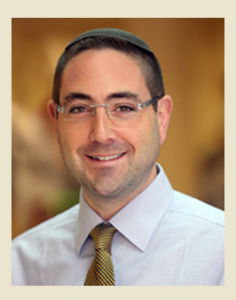 Living Torah by Rabbi Ari Enkin
Living Torah by Rabbi Ari Enkin
We currently find ourselves in the “Sefirat Ha’omer” period: the fifty day period between the holiday of Passover and the holiday of Shavuot (Pentecost, also known as the Festival of Weeks). Indeed, it has been said that Shavuot is the culmination of the Passover holiday, and that these fifty days are actually a continuation, of sorts, of Passover itself. This is because on Passover the Jewish people left Egypt with the purpose of receiving the Torah on Mount Sinai fifty days later, which is what we call Shavuot! According to this teaching, Passover is the longest holiday of all time!
On each night of these fifty days between Passover and Shavuot, we must count how many days have passed. For example, the week which consists of days 12-19 of the Omer count, Jews recite a nightly formula that goes something like this: “Today is 12 days which is 1 week and 5 days of the Omer.” This is actually considered to be a very important mitzvah which originates in the Torah itself. Even those who have missed counting the days of the Omer till now can jump on the bandwagon and begin this easy, daily mitzvah. See here to receive a personal Omer count reminder each day: http://www.ou.org/sefirah_emails/Sefirah13_shsh#.UWETY6JTAbA
An additional feature of this 50 day period is that it has somewhat of a mourning flavor. During the Omer period, weddings are not held and haircuts are not taken. A number of additional mourning practices are observed, each community according to its custom. This is because during this time, the 24,000 students of Rabbi Akiva all died. (Some place this figure higher!)
Why did they all die?
According to tradition, their death was a punishment because they did not treat each other with proper respect. Although one would think that such a ‘minor’ transgression would not be deserving of the ultimate price, when you are among the greatest sages of Israel – as Rabbi Akiva’s students all were- God holds you to a higher standard. This is similar to Moses, who was punished by being forbidden to enter the land of Israel after simply hitting the rock, instead of speaking to it, as God commanded. A major spiritual figure; a minor sin; a major punishment.
Now let’s face it, we’re not on the level of Moses, or even the students of Rabbi Akiva, but we must live in friendship and brotherhood with all those around us. So the next time you pass someone in the hallway, try to be the first one to give that “hello” or “good morning.” Such conduct essentially rectifies the sin of Rabbi Akiva’s students, and by rectifying their sin we will be blessed with the opposite result: long life. Amen.
Do You Love Israel? Make a Donation - Show Your Support!
Donate to vital charities that help protect Israeli citizens and inspire millions around the world to support Israel too!
Now more than ever, Israel needs your help to fight and win the war -- including on the battlefield of public opinion.
Antisemitism, anti-Israel bias and boycotts are out of control. Israel's enemies are inciting terror and violence against innocent Israelis and Jews around the world. Help us fight back!


